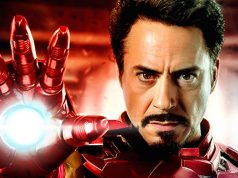I recently made a comment on Facebook regarding the casting of Scarlett Johansson as “The Major” in the upcoming Hollywood adaptation of Ghost in The Shell. Simply stated, “I understand the casting move, and I’m not against it.”
I thought it was clear, but I was asked to elaborate; more as a counterpoint to the ruckus that seems to have permeated through the ‘net, particularly the complaints of ‘whitewashing’ or ‘cultural/ethnic casting’.
Still, tackling that statement is a two-fold approach, as both halves of that sentence reflect two different aspects regarding the casting. The casting move is, of course, purely a financial issue.
The Business Aspect and Name Recognition
The movie making industry isn’t just there to make the movies; their primary aim is to make money with the movies they produce. This should be no surprise to even the casual viewer. The constant reports of a film’s success based on its opening day box-office takings determine the relative failure or success of any given movie today. This is aside from whether the movie is truly good or bad. The studios bank wholly on name recognition on that end, relying more on the knee-jerk reaction of the average movie-goers rather than those who would consider a movie on its actual merits.
Over a decade ago, you could bank on movies starring the likes of Stallone, Schwarzenegger, Ford or Gibson. Then came Denzel, Cruise, and for a while, Reeves. Even when their star power began to wane, their names on a marquee would still pull in the fans and guarantee a certain return on investment by the studios. Of course, times change and now we might be looking at the likes Hemsworth, Downey Jr., Pratt… and do you notice a pattern?
Part of that name recognition is often in casting rather than those behind the screens. If it’s not the stars and their visages gracing the flickering image, then the name might belong to the director. Directors such as Spielberg or Cameron may be able to get their projects going without a big name attached, simply based on their past successes. Consider that the majority of the lead cast in Avatar were mostly lesser-known stars at the time of release and the biggest star Cameron had in that, at the time, would have been Sigourney Weaver. Try naming the stars of Spielberg’s upcoming The BFG, and where you might have known them from.
Casting Against The Norm
Getting a ‘name’ cast to a project may give it credence, get it financed and moved into production. It is cases like these why you end up with what is regarded as ‘whitewash’ casting. The sensitivity to this is a more recent development. It is not likely that such complaints were ever raised when Charlton Heston and Yul Brynner played Moses and Rameses respectively in The Ten Commandments. Nary a complaint was made either about Val Kilmer and Ralph Fiennes essaying the same roles in the animated Prince of Egypt, but you could see the vitriol spewed when Christian Bale and Joel Edgerton played the same characters in the more recent Exodus: Gods and Kings. Were there complaints when Elizabeth Taylor played Cleopatra in 1963, or will there be complaints when Angelina Jolie reprises the role in her upcoming adaptation? Obviously, none of these stars were or are Egyptian.
Speaking of Egypt, there sure were those complaints of the mostly white Australian cast in Gods of Egypt, even though that “Egypt” was a highly fictional and fantastical representation where the Gods and humans lived side by side on some floating disc in outer space! Egyptian born director Alex Proyas had to make a public apology for the casting, even though he’s based in Australia, filmed the movie in Australia, and used Australian stars.
Would having a more ethnically appropriate cast guarantee success of such a movie?

Well, let’s look at 47 Ronin. Aside from having Keanu Reeves in the prime spot of lead actor, the rest of the cast were appropriately Japanese. They even worked in a backstory as to why their lead character was not of Japanese origins, justifying the casting of Reeves, but the complaints still flew about and the movie was considered a major flop, barely breaking even given its budget. If ethnic cast were such an important issue, then Australian Hugh Jackman would have been highly inappropriate to play Canadian X-Man, Wolverine. They probably should have tried Canadian star, Ryan Reynolds. And while there are detractors over any American actor taking on the role of James Bond, would there be complaints about Brits Andrew Garfield and Tom Holland taking on the role of all-American teen, Peter Parker, aka Spider-Man?
Incidentally, where James Bond is concerned, the Brits who played the spy are Roger Moore, Timothy Dalton (Welsh by birth), and Daniel Craig. Connery is Scottish, Lazenby is Australian, and Brosnan is Irish
Casting Ghost in the Shell
So, casting Scarlett Johansson is, where the studios are concerned, a financial issue. Given the nature of the movie, the need for a bigger budget would require a star with a certain box-office draw. Johansson has that, thanks to appearances from The Island to Iron Man II to the Avengers movies as well as headlining Lucy. Being the lead star in Lucy was likely crucial to her casting in Ghost in The Shell. That movie banked on her, as she was the lead star and it was an action-packed role. More importantly, the movie was a financial success, which suggested drawing a sizeable audience or returns.
So, yes, they could go with any other Japanese actress who has been making waves on the international movie scene. Rinko Kikuchi has appeared in 47 Ronin, Pacific Rim and The Brothers Bloom, and had the lead in Kumiko, the Treasure Hunter. Rila Fukushima has appeared in TV’s Arrow, The Wolverine and popped up in an episode of Game of Thrones, but she has not had the lead in any movie. Tao Okamoto starred in The Wolverine and popped up in Batman v Superman: Dawn of Justice (utterly wasted there) as well as appearing in TV shows, Hannibal and The Man in The High Castle. Any one of them could have taken the role if they had been considered or offered the chance. In all likelihood, the budget for the movie would have shrunk immensely as well.
However, consider this. Japan has made live action adaptations of anime properties, complete with a Japanese cast in all the movies. Most of these movies have their fans, even on an international level. But how many have reached the average movie audience around the cinematic world?

The most recent example would be the Attack on Titan duology or even Parasyte. Before that, some may recall Death Note had two films made. How about adaptations of more current anime properties such as Ano Hi Mita Hana no Namae o Bokutachi wa Mada Shiranai (aka AnoHana), Another, Ore Monogatari or Assassination Classroom. It’s not to say the Japanese didn’t have their casting issues when they made an adaptation of Thermae Romae, where the lead character is supposed to be Roman.








